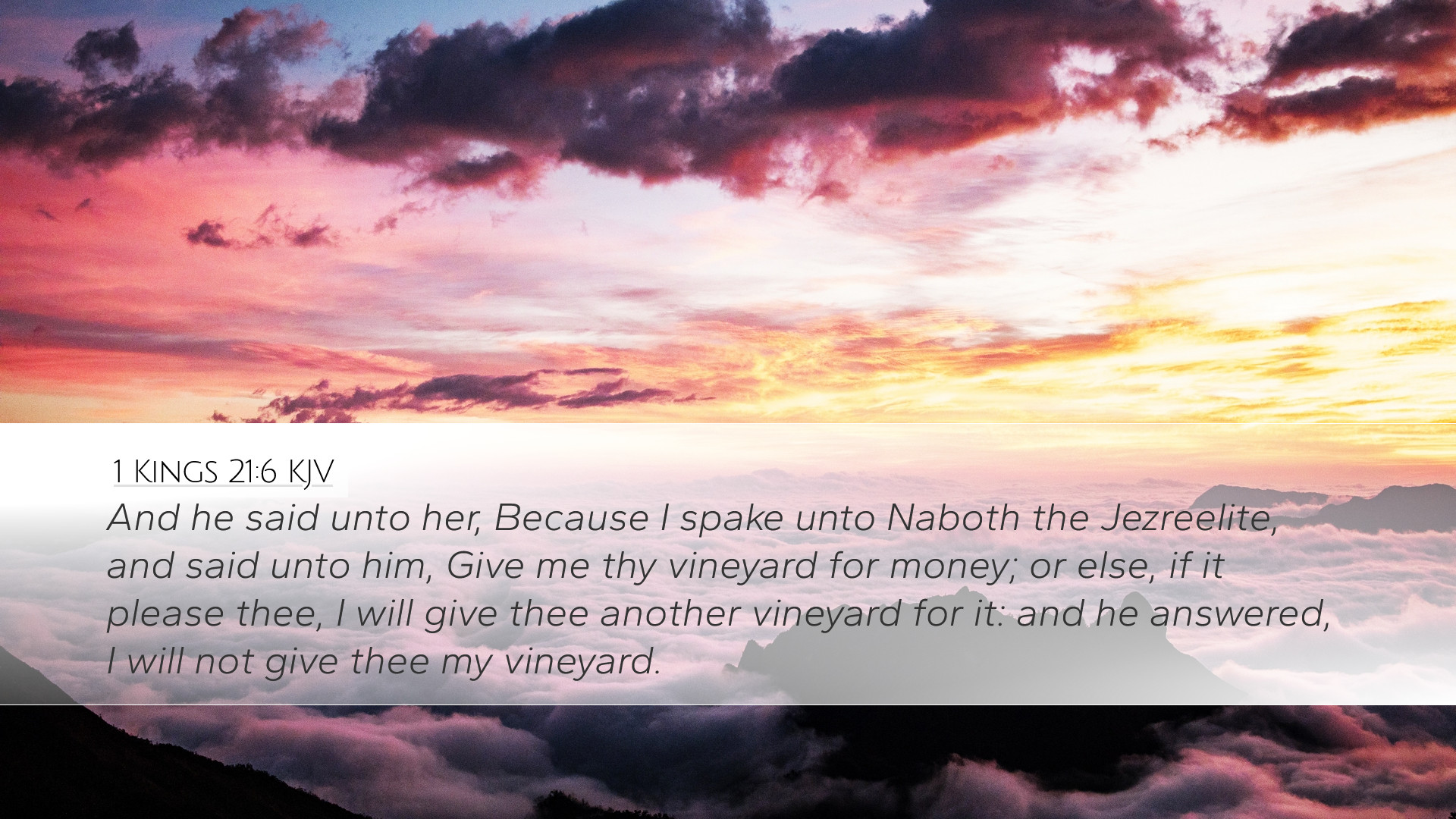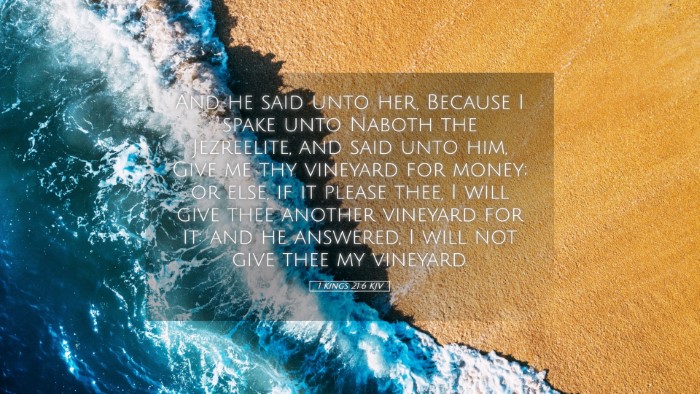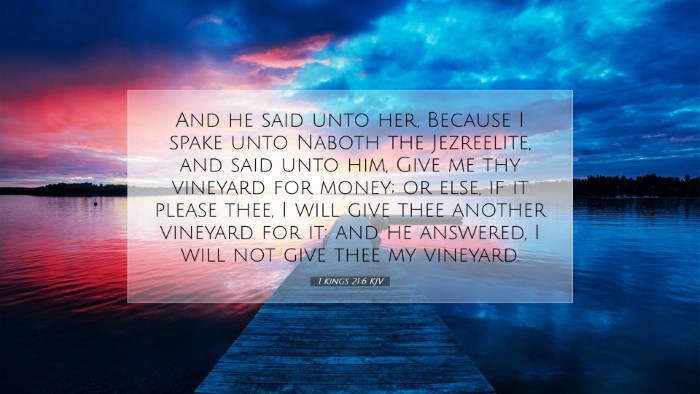Commentary on 1 Kings 21:6
Verse Text: "And he said unto her, Because I spake unto Naboth the Jezreelite, and said unto him, Give me thy vineyard for money; or else, if it please thee, I will give thee another vineyard for it: and he answered, I will not give thee my vineyard."
Introduction
This verse occurs in a narrative filled with moral complexity, addressing themes of greed, injustice, and the abuse of power. The backdrop of this passage reveals King Ahab's desire for Naboth's vineyard, which leads to a tragic unfolding of events fueled by manipulation and covetousness. The insights from various public domain commentaries will elucidate the depth of Ahab's actions and the implications of this interaction.
Contextual Analysis
The context of 1 Kings 21 is crucial for understanding King Ahab's motivations and the significance of Naboth's refusal. Naboth's vineyard, being adjacent to the royal palace, symbolizes much more than mere property; it represents family heritage and God's covenantal promise (cf. Leviticus 25:23).
Misuse of Power
Matthew Henry highlights that Ahab’s request reflects a deeper issue of royal entitlement and abuse of power. As king, Ahab believed his status gave him the right to take what he desired, disregarding the laws that governed property rights among the Israelites.
Greed and Covetousness
Albert Barnes emphasizes the destructive nature of covetousness in Ahab's actions. His desire to possess Naboth's vineyard is rooted not only in personal ambition but also in a significant moral failing. Ahab's insistence on acquiring the vineyard showcases how unchecked desires can lead to severe consequences.
Naboth’s Integrity
Adam Clarke praises Naboth's integrity, depicting him as a man of principle who reveres the commandments of God more than the commands of the king. His refusal to sell the vineyard is a testimony to his strong attachment to his ancestral inheritance and the values it represents.
Theological Implications
This verse propels us to examine the nature of power, righteousness, and divine justice. The interplay between Ahab's royal authority and Naboth’s righteous stand encapsulates the tension between human authority and divine law.
Divine Sovereignty vs. Human Authority
Henry notes that God's sovereignty is paramount in the affairs of men. Despite Ahab’s position, God's laws remain intact, and Naboth's adherence to them illustrates fidelity to God's covenant. The refusal to relinquish the vineyard foreshadows the righteous judgment that will follow Ahab's transgressions.
Reflection for Leaders
This passage serves as a powerful reminder for church leaders today. It reflects the ethical responsibilities inherent in positions of leadership. As Ahab demonstrated how power can corrupt, it challenges modern leaders to reflect on their motivations and the implications of their decisions upon others.
Conclusion
1 Kings 21:6 is a potent reminder of the dangers of greed and the importance of integrity. As we reflect on Naboth's principled stand, we are called to uphold justice and righteousness in the face of external pressures. The narrative illustrates that true legitimacy comes not from human title but from obedience to God's eternal laws.
Practical Application
- Prioritize ethics over expediency: Individuals in positions of influence must place ethics above personal or political gain.
- Value heritage and legacy: Recognizing the importance of one's spiritual and familial heritage as a sacred trust from God.
- Promote justice: Pursue fairness and equity in all dealings, reflecting God's character in our actions.


